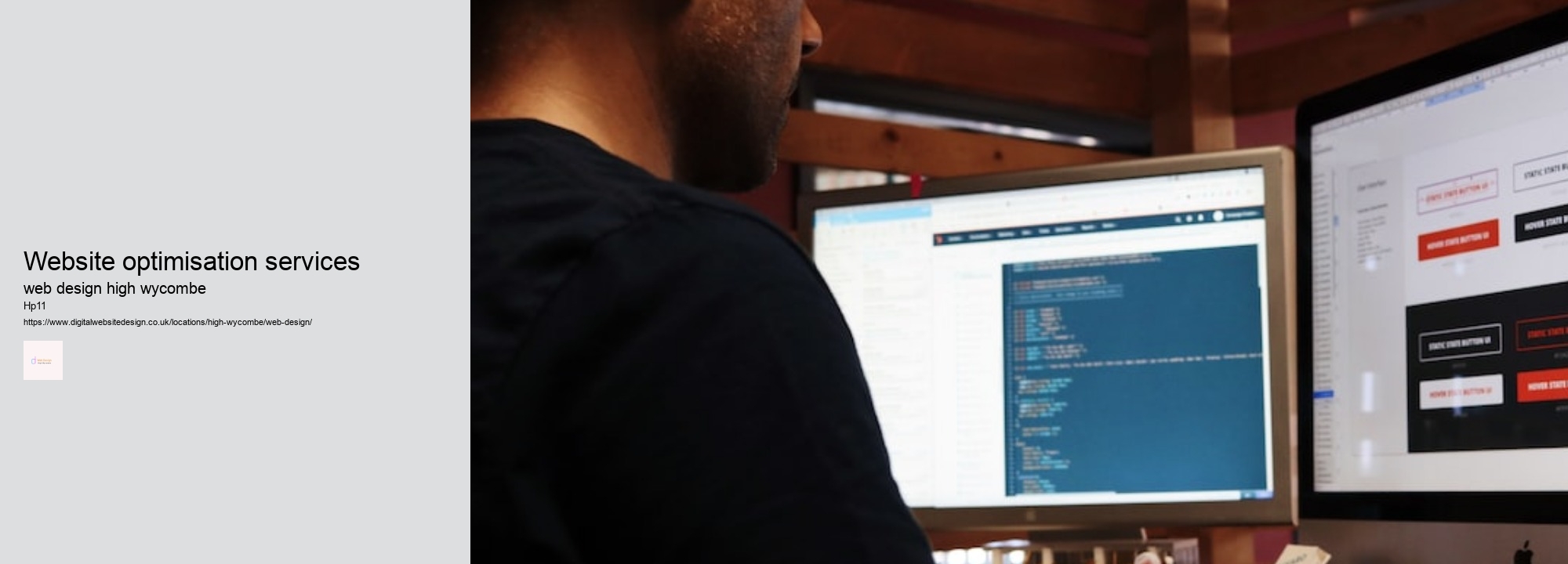
Ensuring your website is optimised for both search engines and consumers is key. It's a long process with multiple steps, requiring lots of attention to detail that can make all the difference in website visibility and user experience. That's why many website owners turn to professionals to get the website optimisation work done swiftly and correctly. We can help make sure your website looks its best in order to attract more visitors. Our experienced professionals understand all areas of website optimisation - from speed optimisation to search engine algorithms - helping you get the most out of every cent spent on your website. Don't underestimate the value of website optimisation! Get it right, and you could be reaching a lot more customers.
Getting your website optimised for the best possible performance can seem daunting, but it's crucial to ensure that search engines find your website and that people enjoy a great user experience when they visit. The best way to get an objective audit of your website is to use some of Google’s website optimisation tools such as Page Speed Insights, Pingdom’s speed test, GT Metrix and SEM Rush’s Site Audit. The results these tests produce can be quite technical, but they will provide you with the information you need in order to confidently implement website optimisation changes on your website. It’s also a good idea to stay up-to-date on the latest website optimisation trends so that you can improve as often as needed.
Here are some common issues that can slow down your website and affect its optimization score: Render-Blocking JavaScript and CSS - These elements slow down the page loading time as the browser must load additional resources before rendering the page. Image Sizes - If your images are too large, they can negatively impact your optimization score. It's important to keep in mind that Google renders pages at around 800px wide, so using larger images for larger browsers will trigger a warning. Server Response Time - A slow server response time is a common issue, especially with shared and inexpensive hosting accounts where the server load is high. Browser Caching - If your site uses scripts or other elements that cannot be cached by the visitor's browser, it can slow down page loading times. For example, Google Analytics cannot be cached. Compression - In some cases, server settings must be adjusted to deliver compressed files to the visitor's browser. Minification - Minification involves removing blank spaces from your HTML and CSS files, reducing the file size and increasing the speed of your site.


When it comes to website optimisation, there are three major factors to consider. Firstly, Google indexes most sites with a mobile-first approach, so make sure that the mobile version of your site is up to scratch and not just the desktop version. Secondly, technical SEO is all about making sure the code, scripts, WordPress theme and plugins are all checked regularly for optimisation. Lastly, your hosting has a huge impact on website speed. Investing in quality hosting can make a huge difference to your page load times instead of relying on cheaper shared options. Pay attention to these important considerations for website optimisation and you’ll no doubt see results soon!
Get a Free Site Audit: To kickstart your optimization journey, we suggest you get a free site audit from Google. The audit will provide you with a comprehensive report on your website's strengths and weaknesses, giving you a clear idea of what you need to improve. However, Google's report is not always enough, and that's where professional help comes in handy. Get Professional Website Optimization Help: Our website optimization services use both Google's tools and other paid website analysis tools to do a full scan of your site. This gives us (and you) an objective report on what needs fixing. Based on the report, we can determine the best optimization approach, what you can do yourself, and what we can do for you to correct everything. Our website optimization experts will examine your site build, theme, and plugins (if you're on WordPress) and suggest the best course of action, along with a fixed cost estimate.

Once you have the report, you might be wondering how to fix site speed issues. Well, the good news is that many of Google's alerts can be fixed relatively easily. For instance, image sizes can be improved by removing large images and replacing them with smaller ones. There are also tools for minification and compression that can help you improve your website's speed. Other optimization strategies include moving your site to a better host, which can significantly improve server response times. However, it's important to note that website optimization is rarely sorted in a few simple clicks. Depending on how your site is built, there could be easy fixes and more complicated ones. WordPress sites, for example, have the option of using plugins to fix problems, but they need to be used sparingly and with caution.
The web is continually evolving, and what was okay yesterday may no longer be okay today. As a website owner, it's essential to remember that your site is subject to ever-changing Google algorithms and technology. A website project is not a set-and-forget process; you need to continually improve it by using and SEO strategy such as search engine optimisation or content marketing and keep an eye on it. If you have admin access to your site, you or your team may have made changes that negatively impact your site. In conclusion, website optimisation services are crucial for better online visibility, improved user experience, and increased conversions from search results. By following our guide and getting professional help, you can fix page speed issues, enhance your website's performance, and take your business to the next level. Get your free site audit today and let's start optimizing your website.